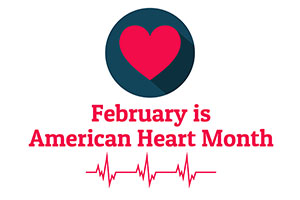Preventing, detecting and treating heart disease in cancer survivors
02/01/2021
Banner – University Medical Center Phoenix and Banner MD Anderson Cancer Center have joined forces to launch a Cardio-Oncology initiative to address the prevalence of heart disease in cancer survivors.
Many cancer patients experience cardiovascular complications as a result of chemotherapy and radiation, including the development of new heart problems and exacerbation of pre-existing heart disease. Complications can include congestive heart failure, coronary artery disease, valvular heart disease, arrhythmias, and arterial or pulmonary hypertension, among others. Even patients without any risk factors or known heart conditions can develop cardiac side effects years and even decades after completing cancer treatment. Sadly, cancer survivors are more likely to die from heart disease than from a recurrence of cancer.
One study showed that despite the cardiovascular complications of cancer treatment having been well-understood since the 1970s, less than half of cancer patients are referred to a cardiologist and only about one-third receive optimal heart failure treatment.
Cardio-Oncology is a relatively new field that focuses on the early detection, close monitoring, and treatment of people with or at risk of developing heart disease before, during and after cancer treatment. The goal is to provide optimal patient and family-centered care using a multi-disciplinary approach, says the program’s director, Dr. Farouk Mookadam, Faculty Physician in Non-Invasive Cardiology at the Banner – University Medicine Heart Institute and Professor of Cardiovascular Disease and Internal Medicine at the University of Arizona College of Medicine Phoenix. “Without a collaborative approach, the majority of cancer patients who develop cardiovascular side effects or who are at high risk for them either are not seeing a physician at all, or are seeing an Internist or Cardiologist who may lack the requisite expertise to manage the subtle nuances and complexities of their condition.”
According to the National Institutes of Health, while small advancements have been made to address the overlapping fields of heart disease and cancer care, there is currently no comprehensive resource to assist clinicians, including primary care physicians, oncologists, and cardiologists, in identifying cancer patients at highest risk of fatal heart disease.

Many cancer patients experience
cardiovascular complications as a result of
chemotherapy and radiation, including the
development of new heart problems and
exacerbation of pre-existing heart disease.
“What we do know is that the best treatments can be achieved if cardiologists and oncologists are interacting as part of a multi-disciplinary, multi-specialist team,” says David Paul, MD, oncologist and Physician Executive for Banner MD Anderson Cancer Center in downtown Phoenix. “We are thrilled to have Dr. Mookadam bring his expertise to Banner MD Anderson to begin our Cardio-Oncology program. From there, we plan to grow the program across the Valley to reach even more patients needing this high-value, coordinated care.”
In addition to the collaborative care model, as part of the Banner – University Medicine Division, the Cardio-Oncology clinic will also conduct research and educate physicians and other care providers to improve care and knowledge for the future.
Dr. Mookadam says this powerful partnership leverages the scale and reach of Banner Health with its large patient population, along with the vast expertise of Banner MD Anderson Cancer Center. “Together, our two entities will bring high-quality, high-end, focused cardio-oncologic care to benefit thousands of cancer patients, survivors and their families,” he says.
Philanthropic support will help launch this initiative, providing critical seed funding to serve an estimated 2,000 patients in the first year, after which the initiative will become self-funding. Click here to support the Cardio-Oncology Initiative with your tax-deductible charitable gift.


